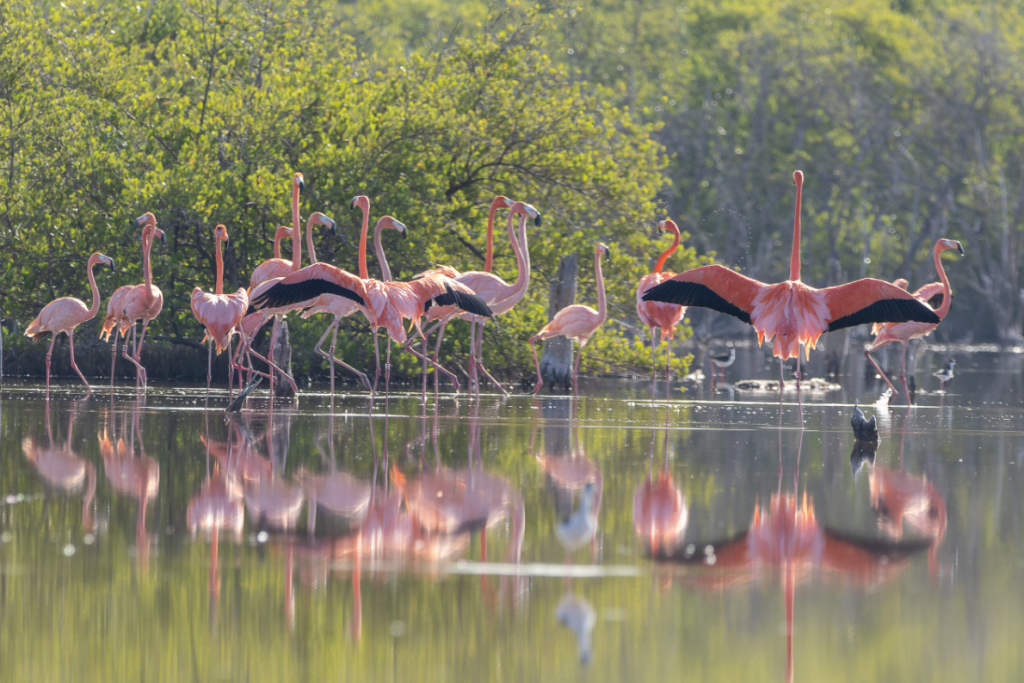
The Ministry of the Environment announced the release of 44 flamingo birds that were rescued as part of the Pink Rescue (Rescate Rosado) program. The National Zoo and the Ecological Action Group (Grupo Acción Ecológica) are working with Ministry of Environment specialists on the program that seeks to conserve the Caribbean flamingo (Phoenicopterus ruber).
The birds were released in the Estero Balsa National Park, now under reinforced surveillance. The protected park is the country’s most strategic location for the species with documented important nesting areas sited.
Caribbean flamingos are essential to maintaining the balance of ecosystems and ensuring a sustainable future for future generations.
Deputy Minister of Protected Areas and Biodiversity, Federico Franco spoke at the release of the importance of active collaboration for the preservation of the common natural heritage. The birds were released back to the wild in the early hours of Friday, 1 March 2024 to avoid the stress of the day’s heat.
Within the framework of the initiative, the March release was the fourth release of flamingos in the country carried out by the project. The previous three other releases were in the Baní Dunes in the southcentral region and a previous one in the Estero Balsa Mangrove National Park.
The Rescate Rosado project arises in response to the critical situation of this emblematic species, threatened by illicit trade and the degradation of its natural habitat. This initiative, which integrates various key conservation actors, has as its main objective to protect and preserve the Caribbean flamingo and its environment.
The Manuel Valverde Podesta National Zoo, that falls under the Ministry of Environment governance, plays a crucial role in the recovery and rehabilitation of rescued flamingos, guaranteeing their adequate quarantine and preparation for their reintegration into their natural environment.
One of the project’s fundamental strategies is awareness-raising and the active participation of hotels, who commit to not keeping wildlife in captivity and to collaborate in awareness campaigns about the importance of this species. Additionally, they assume responsibility for the quarantine of flamingos used in their facilities.
The Caribbean flamingo is an emblematic species that lives in brackish water wetlands, marshes and estuaries in the region. Its conservation is essential to maintain the balance of these ecosystems and guarantee a sustainable future for future generations.
The Pink Rescue project volunteers have convinced dozens of hotel and tourism operations to release the birds that lived in misery as they were impeded to fly and instead were many times-photographed adornments in the gardens of the hotels.
Tourists are invited to visit the natural habitats of the flamingos in the Enriquillo Lake, the Baní Dunes and the Estero Balsa National Park.
Read more in Spanish:
Ministry of Environment
6 March 2024

